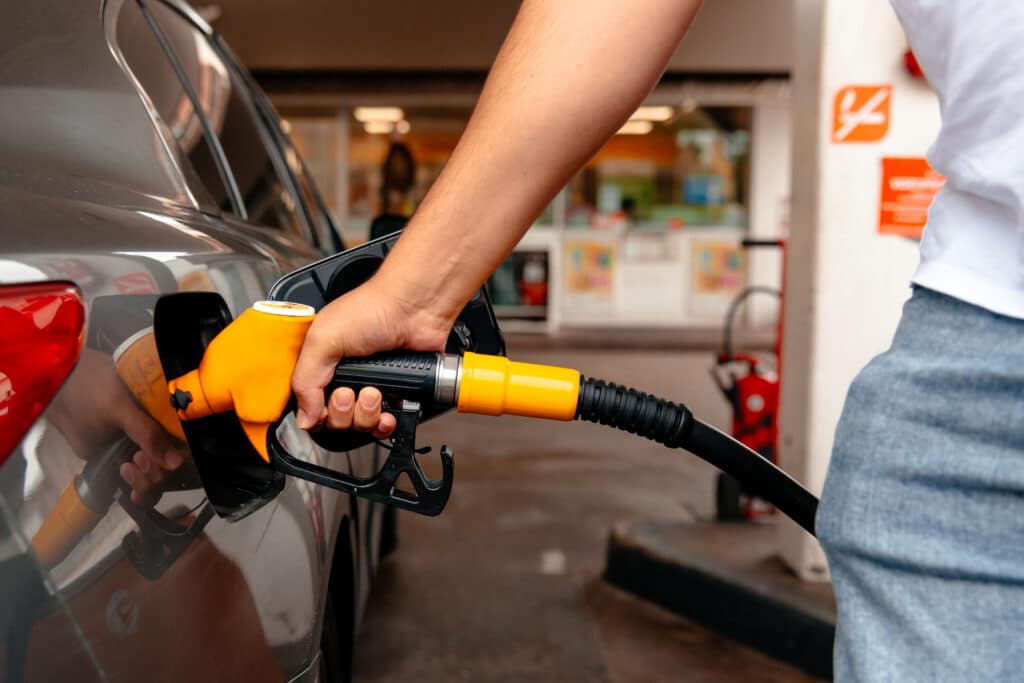Premium vs. Regular Gas
April 13, 2023
What’s the difference between premium and regular gas?
We’ve all wondered if we are using the right gas while filling our tanks. Is there any advantage to putting premium gas into your ride? Most people will have an opinion on this question in one shape or another. Along the way, someone will tell you that premium gas is best for your car. We also have friends and family members who only use regular gas in their cars. What are the facts? We want to help you make an informed decision at the pump and give you enough knowledge to ground your decision.
Do you ever wonder to yourself:
- What is Gasoline?
- Where does it come from?
- How is it made?
These are all very important questions. Most people can still fuel up their cars without knowing the answers. That is because all types of gasoline come from the same prime sources. All gasoline comes from crude oil, which are fossil fuels that we extract from the ground. In other parts of the world, petroleum is the name used for crude oil.
Companies refine crude oil through a process called distillation. This produces several different products, one of which is gasoline.
As it turns out, Gasoline is a very broad and flexible substance. At a molecular level, it is a mixture of molecules consisting of hydrogen and carbon atoms. We mix additives and compounds into it to make it work for different types of machines and vehicles.
We use this gasoline to power our cars, trucks, and motorcycles. When we ignite gasoline, it releases heat. This causes an explosion in an engine’s cylinders that we use to propel a vehicle, forwards.
This also means gasoline is flammable, and you should always store it with care. Keep your gas tanks away from any flames or heat sources.
Meet the Octanes (Octane Ratings)

In Gasoline, there are several additives that are commonly used to enhance its use in an engine. One of the main additives is ethanol, which is a type of alcohol produced from corn. This compound is highly corrosive, but it is very useful to help resist engine knocking. This is the sound you hear when an engine ignites too early which can damage an engine over time. Ethanol can also reduce emissions and improve the efficiency of the fuel.
The measure of resistance to engine knock that fuel has translates to an Octane Rating. The higher this rating is, the more resistant the gasoline is to engine knock occurring. Modern engines can use electronics to assist with decreasing engine knocking, but this can still lead to a loss in fuel efficiency.
In the United States, gasoline is available in three different grades: regular, mid-grade, and premium. The main differences between these grades of gasoline are their octane ratings and their prices.
There are other grades you can find, but they all follow the octane rating as their basis. The fuel you pick largely depends on what your car takes and the quality of the fuel.
Regular Gasoline
Regular gasoline generally has an octane rating of 87. This is the standard gasoline grade that most modern cars on the road drive on. Most engines are optimized for this fuel and can run well with minimal issues.
Midgrade Gasoline
Midgrade gasoline generally has an octane rating somewhere between 89 – 90. This fuel is slightly more stable than regular fuel and will reduce engine knock. Some cars are designed to run on midgrade gasoline such as some SUVs. It is the least commonly used, just below premium fuel in terms of gas sales in the US Market.
Premium Gasoline
Premium gasoline is the highest-octane fuel available with an octane rating between 91 – 94. Some vehicles do require premium fuel to run at peak efficiency. These vehicles generally use high-performance or turbocharged engines that require premium fuel to operate at peak performance.
This fuel provides the highest resistance possible to engine knock. Most vehicles that run on regular gas will not necessarily improve performance by switching to premium gas.
In general, it’s recommended you use the grade of gasoline recommended by your vehicle’s manufacturer in order to ensure proper engine performance and avoid potential damage. If your vehicle is designed to run on regular gasoline, there may be no benefit to using a higher-grade fuel, while using a lower-grade fuel than recommended could cause engine damage or reduce performance.
What if your car requires premium gas?
Use premium gas. If your vehicle requires premium, then it probably is a high-performance vehicle and requires an extra level of protection from engine knock. Using regular fuel in these vehicles can cause harm over time and potential damage to the engine.
You can usually tell if your vehicle requires premium by reading your driver’s manual. You can also check your fuel door to see the manufacturer’s recommendation for fuel rating.
Inside your fuel door, it will say “Premium Fuel Only”, or it will say something like “Minimum Octane Rating 91” if your car takes premium fuel.
What if your car doesn’t require premium gas?
Do not use premium gas. If your vehicle does not require premium gasoline, there is typically no need to use it, as using a higher-octane fuel than recommended by the manufacturer does not provide any additional benefits and may be a waste of money. While premium gas may seem nicer it is often wasted in a vehicle that is not designed for it.
Using a higher-octane fuel than what the manufacturer requires may even have negative consequences or damage to your vehicle over time. This is because standard engines cannot fully use all the additives in a higher-octane fuel.
If you are unsure what type of gasoline your vehicle requires, you can check your owner’s manual or the fuel door for the manufacturer’s recommended octane rating. Using the recommended grade of gasoline will help ensure proper engine performance, fuel efficiency, and longevity.
Typically, cars that take regular fuel will not say anything on the fuel door or will say “Unleaded Fuel Only”.
What are the benefits of premium gas?

Since premium gas has a higher octane rating than other types of gasoline it provides greater protection from engine knock or spontaneous engine detonation. If your vehicle is designed for premium gas, it can provide several advantages over regular fuel. Some of these advantages include:
- Improved engine performance: In high-performance engines, the use of premium gasoline can help to optimize engine performance. This provides better acceleration, more power, and smoother operation.
- Increased fuel efficiency: While premium gasoline may be more expensive than regular gasoline, it can also provide better fuel efficiency in certain situations. For example, if your vehicle requires premium gasoline and you use regular gasoline instead, your engine may have to work harder to compensate for the lower octane rating, which can result in reduced fuel efficiency.
- Reduced engine wear: Using premium gasoline may help to reduce engine wear over time by providing better lubrication and reducing the likelihood of engine knock or detonation.
- Cleaner engine: Premium gasoline often contains a higher concentration of detergents and additives than regular gasoline, which can help to keep your engine clean and free of deposits.
While premium gasoline can provide benefits in certain situations, it is not a substitute for regular engine maintenance and proper driving habits.
Does higher octane fuel improve gas mileage?
No, higher octane fuel does not necessarily provide better gas mileage. The octane rating of gasoline only measures its ability to resist engine knock and does not directly affect fuel efficiency.
The fuel efficiency of a vehicle depends on a variety of factors, including the vehicle’s make and model, driving habits, and the condition of the engine and other components. Proper vehicle maintenance, such as regular oil changes and tire rotations, can help to improve fuel efficiency and prolong the life of the engine.
At the end of the day, how you drive is a better indicator of gas mileage than what gas you choose to put into your car. If fuel efficiency seems to be an issue for you, consider investing in a hybrid or an electric car. These technologies are only continuing to improve and advance each year. There are even subsidies offered by the government to help you afford them. Feel free to contact us if you have more questions about this topic, we are happy to help you.
Will premium gas clean my engine?
Premium gasoline contains a higher number of detergents and additives than regular gasoline. This can help to keep your engine clean and free of deposits. These additives can help to remove deposits that may have built up in your engine over time and prevent new deposits from forming.
But, it is important to know that premium gas is not a replacement for the proper care of a vehicle. Regular engine maintenance, oil changes, and tune-ups are all necessary to keep your engine clean and in working order.
If the cleanliness of your engine is a concern, refer to the guidelines in your owner’s manual from the manufacturer. Every car is different and there may be better solutions for keeping your engine clean and running at top condition.
Follow the suggested maintenance schedule for your vehicle to avoid any future issues that might pop up from your engine down the road.
So, is premium gas worth it?
Whether or not premium gas is worth it depends on your specific vehicle, driving habits, and personal choice. If your vehicle requires premium gasoline, use premium. However, if your vehicle does not require premium gasoline, there may be no benefit to using it.
Sources:
Contact Us